Bacteria Found in Nuclear Reactors Could Be the Secret to Faster
Por um escritor misterioso
Last updated 07 fevereiro 2025
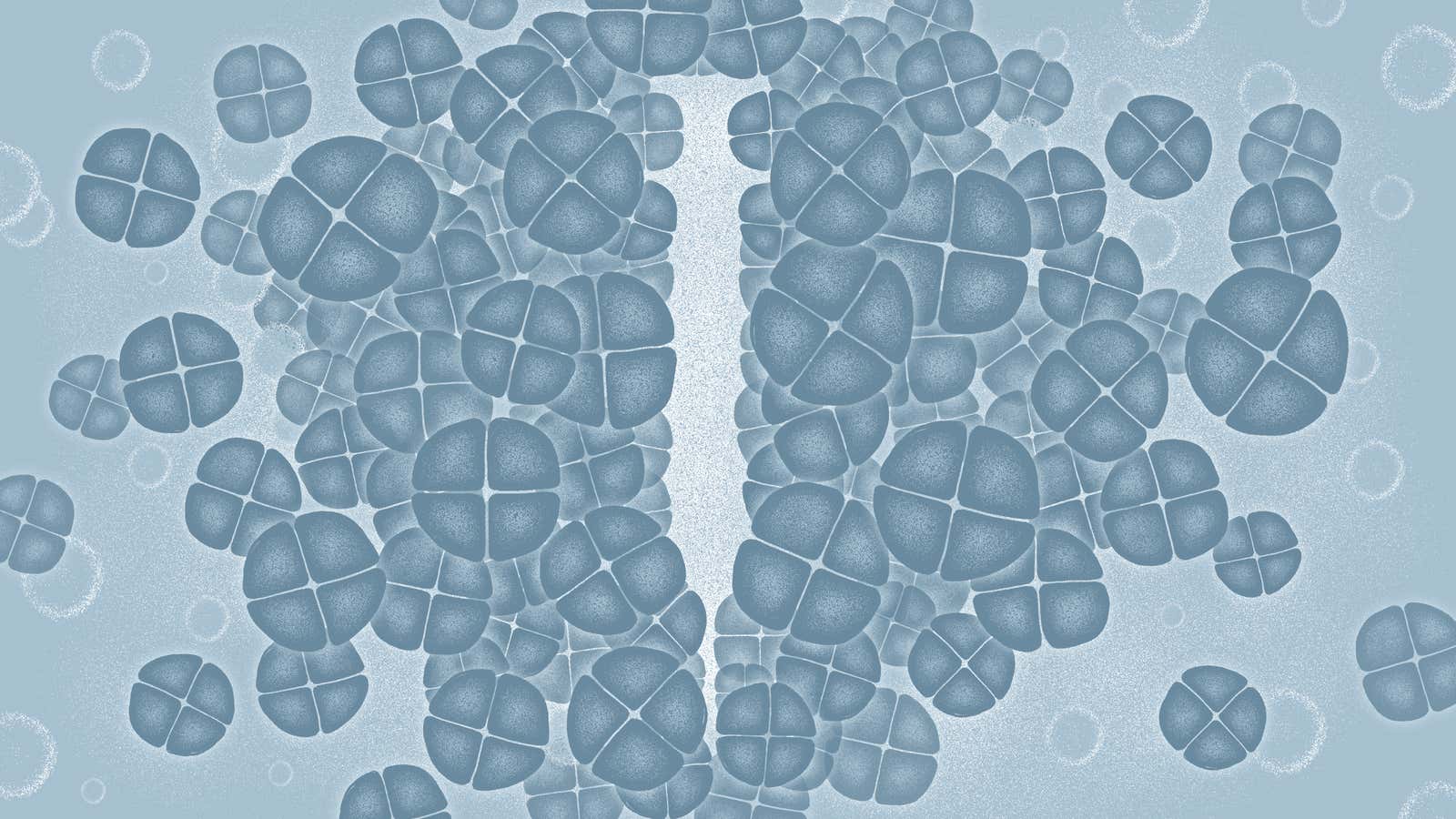
The extremophile bacterium Deinococcus radiodurans was first discovered in 1956 at Oregon State University, where it was busy ruining a gamma ray experiment designed to sterilize a tin of ground meat. The “sterilized” meat spoiled, thanks to D. radiodurans and its preternatural durability in the face of radiation: The…

How Extremophile Bacteria Living In Nuclear Reactors Might Help Us

This Two Billion Year-Old Natural Reactor May Hold The Key To Safe
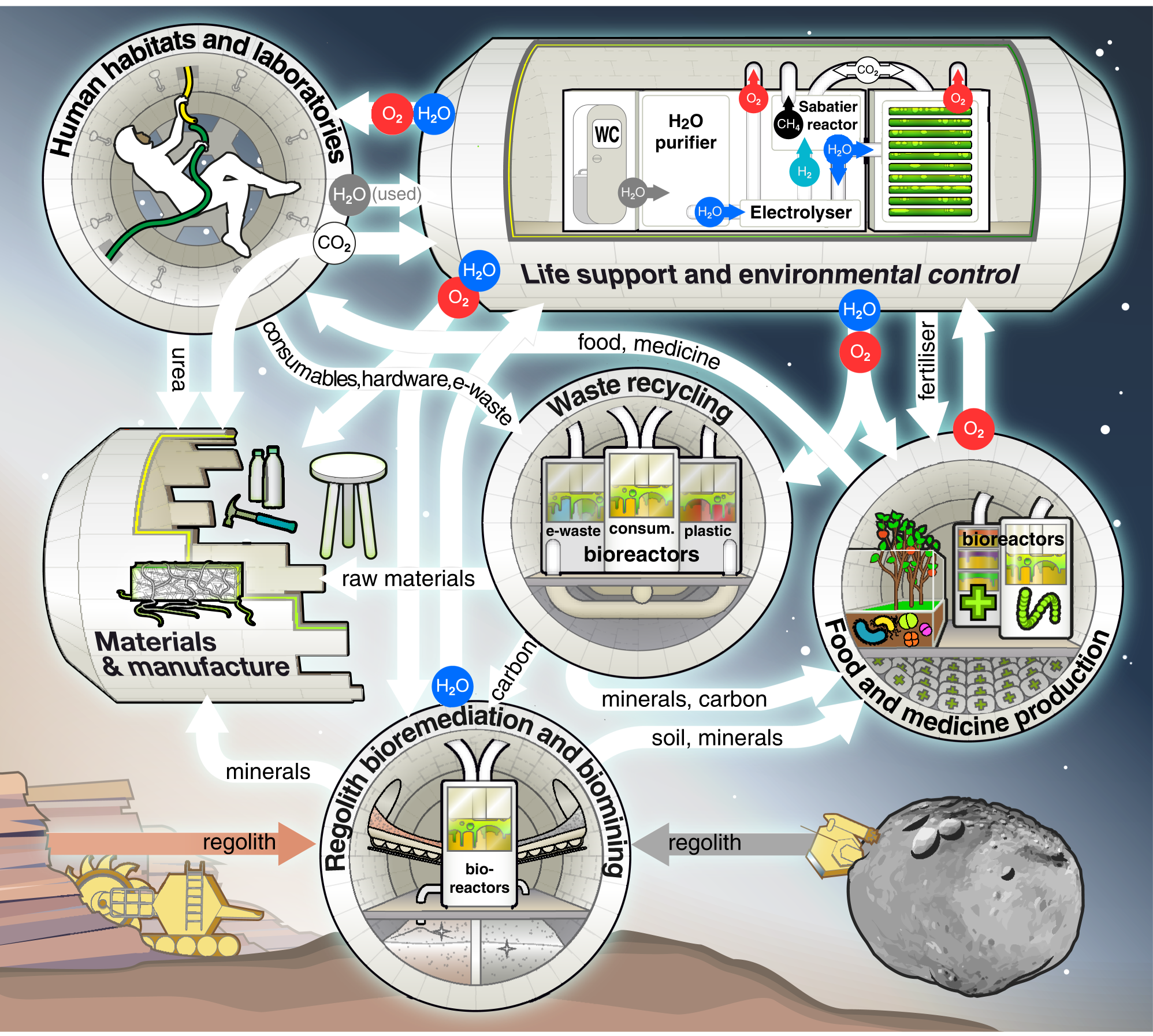
Toward sustainable space exploration: a roadmap for harnessing the

Scientists discover a bacterium that breathes uranium and
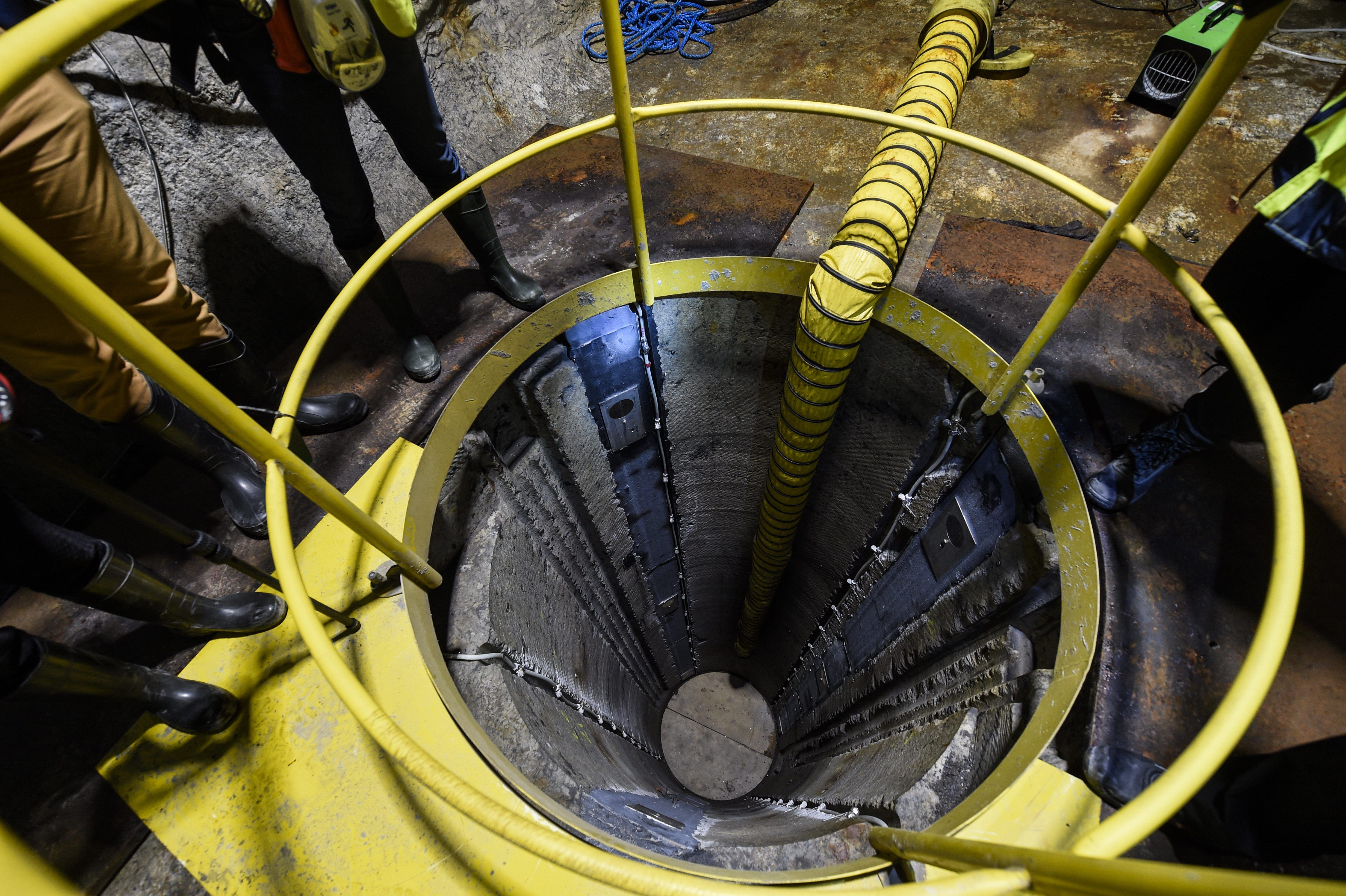
This Underground Tomb in Finland Will Store Nuclear Waste for
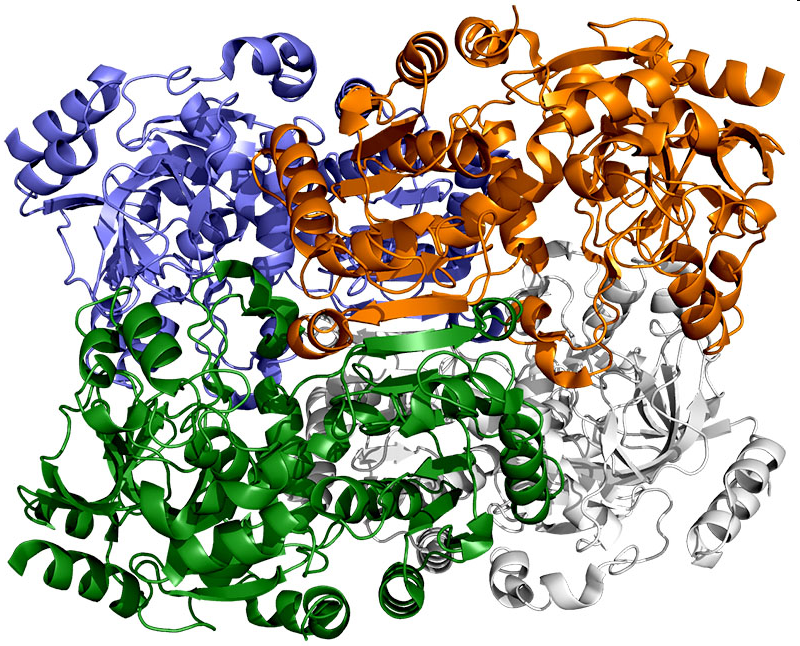
Engineered soil microbe can convert CO2 20 times faster than

Bacteria Found in Nuclear Reactors Could Be the Secret to Faster

Radioactivity May Fuel Life Deep Underground and Inside Other

Bacteria, Cell, Evolution, & Classification

Chernobyl's Strange Black Fungi Have a Superpower - Atlas Obscura
Recomendado para você
-
 Deinococcus radiodurans: Radiation resistance – The Microbial07 fevereiro 2025
Deinococcus radiodurans: Radiation resistance – The Microbial07 fevereiro 2025 -
Radiation-resistant bacterium could be key to faster, safer, more07 fevereiro 2025
-
 Deinococcus Radiodurans: The World's Toughest Bacterium. A Review07 fevereiro 2025
Deinococcus Radiodurans: The World's Toughest Bacterium. A Review07 fevereiro 2025 -
 Deinococcus radiodurans ( daviddarling.info07 fevereiro 2025
Deinococcus radiodurans ( daviddarling.info07 fevereiro 2025 -
 Oxidative Stress Resistance in Deinococcus radiodurans07 fevereiro 2025
Oxidative Stress Resistance in Deinococcus radiodurans07 fevereiro 2025 -
 Elucidation Of The Structure Of The Surface Layer Of Deinococcus07 fevereiro 2025
Elucidation Of The Structure Of The Surface Layer Of Deinococcus07 fevereiro 2025 -
 Interdigitated immunoglobulin arrays form the hyperstable surface07 fevereiro 2025
Interdigitated immunoglobulin arrays form the hyperstable surface07 fevereiro 2025 -
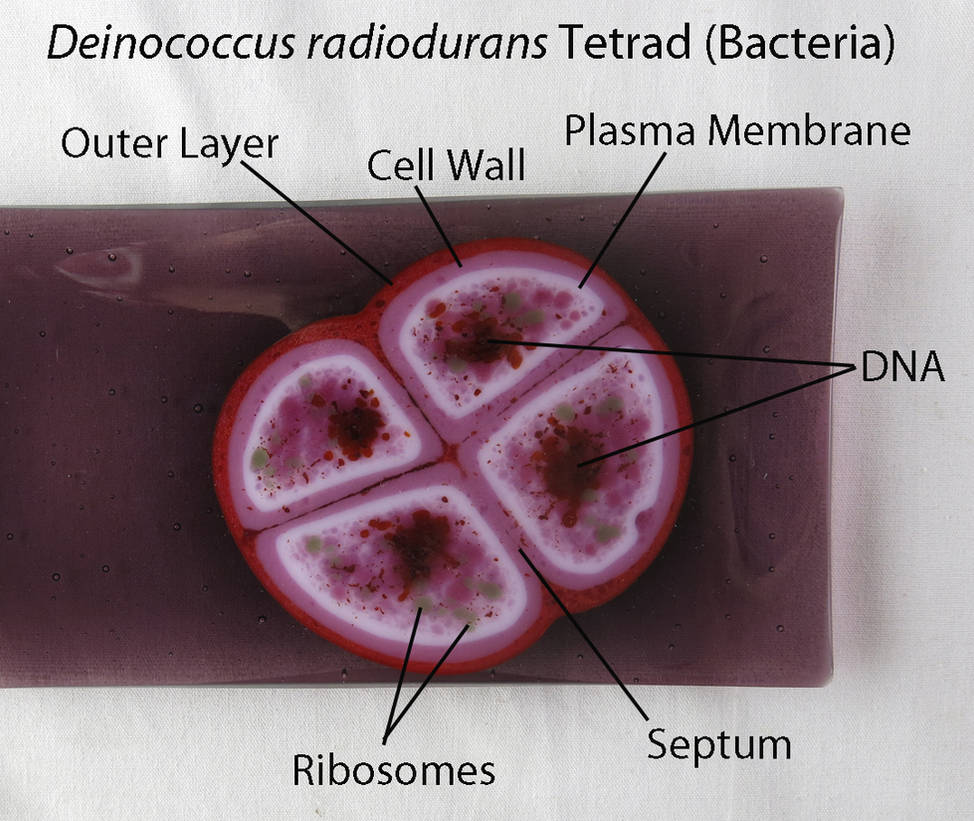 Deinococcus radiodurans Bacteria dish by trilobiteglassworks on07 fevereiro 2025
Deinococcus radiodurans Bacteria dish by trilobiteglassworks on07 fevereiro 2025 -
 Deinococcus radiodurans nucleoid and distribution states of the07 fevereiro 2025
Deinococcus radiodurans nucleoid and distribution states of the07 fevereiro 2025 -
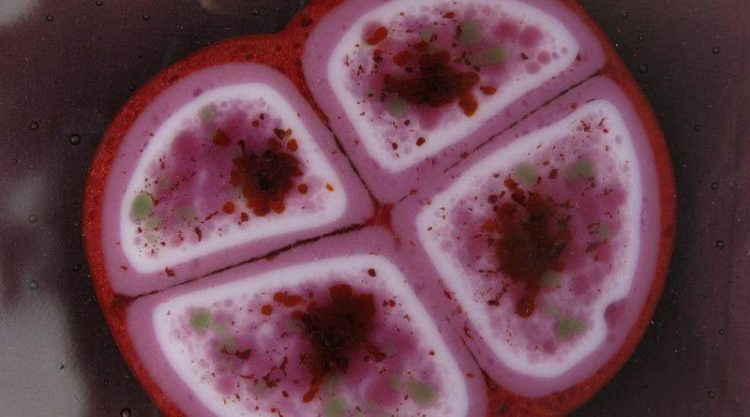 The World's Toughest Bacterium Can Withstand Anything From07 fevereiro 2025
The World's Toughest Bacterium Can Withstand Anything From07 fevereiro 2025
você pode gostar
-
NASCAR unveils new Phoenix Speed Hub on Roblox07 fevereiro 2025
-
 Red Dead Redemption - PS4 (Mídia Física) - Nova Era Games e07 fevereiro 2025
Red Dead Redemption - PS4 (Mídia Física) - Nova Era Games e07 fevereiro 2025 -
🎃] item asylum - Roblox07 fevereiro 2025
-
 How to buy driving simulators (a PoliceOne guide)07 fevereiro 2025
How to buy driving simulators (a PoliceOne guide)07 fevereiro 2025 -
 Chad Sapieha: Phil Spencer's continued rise within Microsoft07 fevereiro 2025
Chad Sapieha: Phil Spencer's continued rise within Microsoft07 fevereiro 2025 -
 one piece Pixel Art Mosaic Painting Building Blocks MOC anime07 fevereiro 2025
one piece Pixel Art Mosaic Painting Building Blocks MOC anime07 fevereiro 2025 -
 Cute Anime Girl Kimono 4K Wallpaper #6.100507 fevereiro 2025
Cute Anime Girl Kimono 4K Wallpaper #6.100507 fevereiro 2025 -
 Jogo da princesinha sofia bebe07 fevereiro 2025
Jogo da princesinha sofia bebe07 fevereiro 2025 -
 Download Gratuito de Fotos de quebra-cabeças07 fevereiro 2025
Download Gratuito de Fotos de quebra-cabeças07 fevereiro 2025 -
 Pokémon Wasted What Could've Been Its Coolest Monster07 fevereiro 2025
Pokémon Wasted What Could've Been Its Coolest Monster07 fevereiro 2025

![🎃] item asylum - Roblox](https://tr.rbxcdn.com/71185dd0bb984cf194d14ecfd2fe9092/768/432/Image/Png)